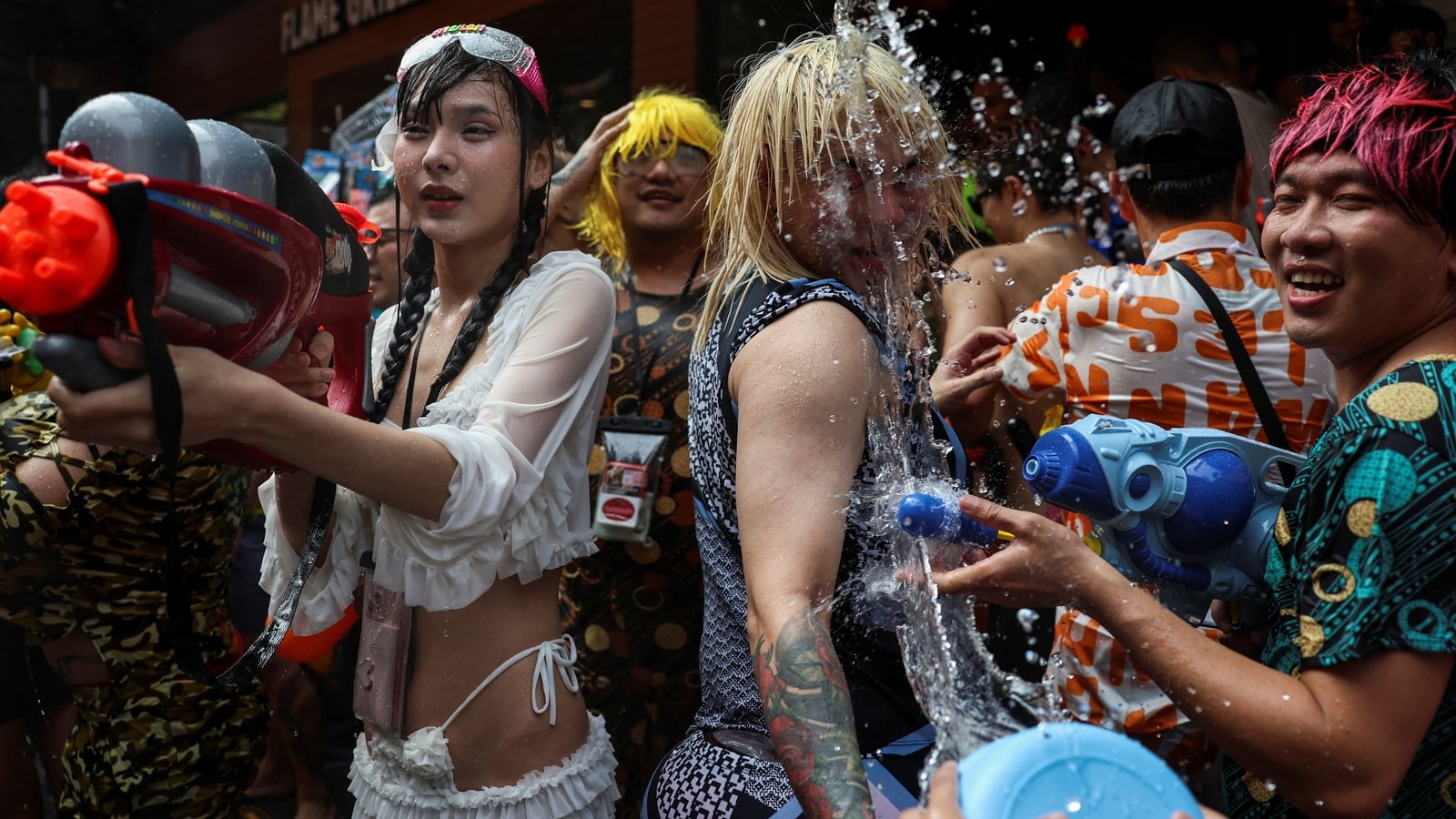
Songkran: A Time of Celebration and Concern in Thailand
A Colorful Welcome to the New Year Amid Record Heat
It’s that time of year again in Thailand—Songkran, a traditional three-day festival marking the country’s New Year, has arrived! And with it comes a week-long celebration filled with excitement and color as people splash each other with water guns and buckets. This year, however, there is an added element of worry as Southeast Asia experiences record-high temperatures.
People of all ages eagerly anticipate Songkran, during which Thailand’s predominantly Theravada Buddhist population engages in joyous festivities also observed under different names in neighboring Myanmar, Cambodia, and Laos. The festival began on Saturday and, although formally lasting only three days, informally extends for a full week to accommodate family gatherings and travel.
A Popular Celebration with Economic Impact:
Songkran is an immensely popular event that attracts both locals and foreign tourists alike; this year, over half a million international visitors are expected to join in the fun, generating significant revenue for the country (over 24 billion baht or $655 million). Even during past crises such as droughts and the pandemic, Thai governments have been reluctant to scale back these festivities.
A Time of Joy and Concern:
While Songkran originated as a religious festival with rituals like praying for the rainy season and blessing Buddha images, it has evolved over time. Today, it is often associated with public drunkenness and, unfortunately, an increase in sexual assaults and traffic fatalities during the extended holiday period, earning it the nickname “seven dangerous days.”
A Scorching Heat Wave:
The festival usually coincides with the hottest time of year, with temperatures climbing above 40°C (104°F). However, this year, an unusual heatwave has caused additional concern. The United Nations Children’s Fund (UNICEF) issued a warning, stating that the extreme weather could put millions of children at risk in the region.
A Global Issue with Local Impact:
According to Benjamin Horton, director of the Earth Observatory of Singapore, there are three key factors driving heatwaves: El Niño, rising global temperatures, and human-induced climate change. The concrete jungles of Southeast Asian cities further exacerbate the issue, making the poor particularly vulnerable due to a lack of shade and stifling conditions.
Adapting to a Warmer World:
Horton emphasizes the urgent need to drastically reduce carbon emissions while also adapting to the new climate. This includes raising awareness about the dangers of extreme heat and implementing emergency response plans, such as providing cool-down areas for those at risk.
A Region in Distress:
The impact of the heatwave extends beyond public health concerns. The entire Mekong Delta region experienced extreme temperatures during April, with parts of Laos and Thailand recording averages 5–7°C above normal (41–44.6°F). This has resulted in lower water levels for hydropower dams, compromising energy production and putting a strain on power systems across the region.
A Call to Action:
Experts like Dimitri Pescia from Agora Energiewende emphasize the cumulative effects of climate change, which cause great distress to both societies and ecosystems. There is an urgent need to address these challenges head-on through policy changes and adaptations at the local level—a sentiment echoed by authorities across Southeast Asia as they take steps to protect their citizens from the scorching heat.
A Balancing Act for Authorities:
In the Philippines, officials suspended classes in over 5,800 public schools last week, opting for home-based and online learning instead to shield students from the dangerous heat. In cities like Manila, school hours were adjusted to avoid the hottest parts of the day, and tens of thousands of students alternated between physical and virtual attendance—a delicate balance between education and safety.
A Time of Caution:
As Songkran celebrations continue amid the sweltering heat, officials urge caution. Manila Mayor Honey Lacuna-Pangan advises limiting outdoor activities when the heat index rises to extreme levels. “If people don’t have urgent tasks outside,” she says, “the best precaution really is to stay indoors.”
This Songkran serves as a reminder of the delicate balance between preserving cultural traditions and adapting to a changing climate—a challenge that Thailand, along with many other nations, must navigate in the years ahead.
